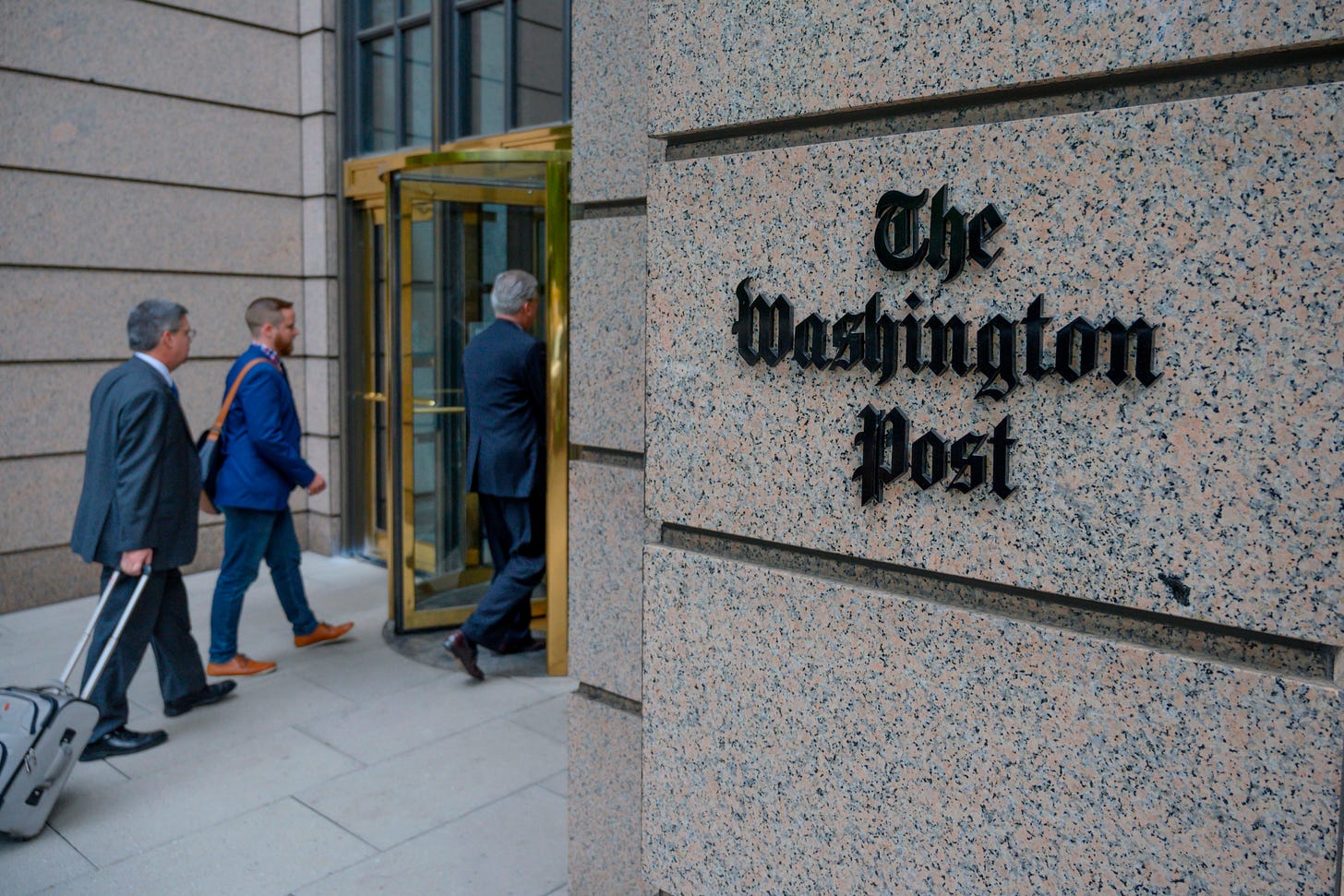The 'Objective' Truth
In a racist & sexist world, only white men are seen as impartial
After the shooting in Georgia—an attack that left eight people dead, six of them Asian women—Asian-American journalists reported being sidelined from covering the massacre because of worries they couldn’t be objective. (Editors didn’t seem to have the same concern about white male writers being biased towards the shooter.) Last week, Washington Post reporter Felicia Sonmez tweeted that she was banned from covering stories about sexual assault after she disclosed that she was a survivor. “It is humiliating to again and again have to tell my colleagues and editors that I am not allowed to do my job fully because I was assaulted,” she wrote in an email to management.
What’s next? Should reporters who’ve been seriously ill be forbidden from writing about health care? Should writers have to disclose past abortions to their editors before covering Roe v Wade?
Reporters are human beings, and every one of them has varied life experiences and beliefs; any person that picks up a newspaper or watches a cable news show knows this. What’s actually prejudicial is editors and managers singling out experiences around race and gender as potential flags for bias. Why these issues? Why these reporters?
Obviously, we know the answer. In a racist and sexist world, only white men are ‘objective.’ We still live in a culture that doesn’t see straight white men as having a political identity, or being capable of bias—they’re the default.
So when mostly white men run newsrooms, any reporter who speaks openly about issues that deviate from that ‘norm’ identity and experience is labeled a troublemaker. And because cultural messages continue to paint women who speak up about assault as ‘hysterical’, and people who complain about racism as rabble-rousers, management is given all the ammunition they need to bench reporters without too much backlash.
But if publications silence reporters based on their experiences with gender and race, they’re going to be hard-pressed to find anyone other than white men to deliver the news. This seems particularly short-sighted in a moment when newsrooms across the country are desperate to diversify their staff.
After all, what woman doesn’t have a story about sexual harassment or assault? Are we really only going to let men report out pieces on rape?
The truth is that writers’ experiences with racism and sexism make them better equipped to write about those issues. Their history might make it easier to avoid victim-blaming in a headline, for example, or make them more able to decipher thinly-veiled racist dog-whistles from politicians. That higher-ups are so eager to suppress this kind of expertise feels suspect—not to mention, potentially illegal.
Media leaders should know better. If reporters fear losing their jobs for coming forward about rape, racism, or anything else that feels scary to their bosses—newsrooms will either be eerily homogenous or completely stifled and suffering. We can’t ask reporters to uncover and share the truth for a living, but punish them for doing the same about their own lives.
We all come to our jobs with life experiences that impact who we are and how we do our work; the only thing that’s ‘biased’ is treating those experiences differently based on who has them.
UPDATE: Since writing this, Felicia announced that the Washington Post rescinded its ban on her writing about sexual assault. Great news but this never should have happened.



This is something that's bothered me for a long time. I'm skeptical of the entire idea of "objective" journalism--after all, we are all subjects, everyone is subjective in some way. All we can do is acknowledge, confront, and examine our own subjectivity. White men, as Jessica points out, have never been objective at all, merely in power. But the idea that one must be "objective" when writing has been ingrained in me since I was a kid and only since college did I begin to examine and reject it. And if we follow these editor's ideas about subjectivity to their illogical conclusions, then anyone who's had any human experience shouldn't be able to write about said experience...which would get pretty silly after a while, and the entire concept of journalism would fall apart. Haha. I think Jessica is right that having experience with something, like racism or sexual assault, would make someone more equipped to write about it--more attuned to nuance, more aware of their own subjectivity, etc.
During the decades I was a working journalist, I was "useful" on certain beats where the newsroom wanted to look as if it were not a bastion of white male supremacy, but "too biased" to cover any subject I knew the nuances of because THEY AFFECTED MY LIFE, like the Equal Rights Amendment (back in the 1980s). Same with the Black journos, who were "proof" of equal employment opportunity, even though they were sometimes sent into physical danger in the name of "fairness" and used as props in the name of Affirmative Action. One of the young Black women hired at that time thrived in the new age of live broadcasting. You've heard of Oprah, I believe?